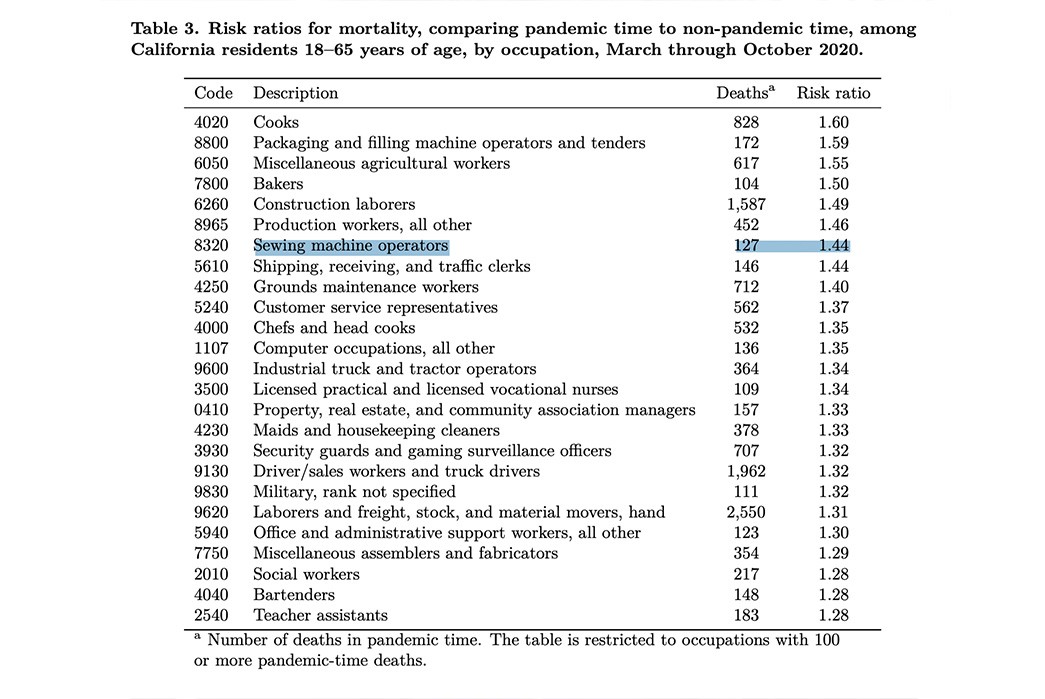The Covid-19 pandemic has affected everyone, but your ethnicity, income, and occupation play a big role in how great that impact might be. A recent study from the University of California, San Francisco shows that “Sewing Machine Operator” (the people that make our clothes) was one of the jobs with the greatest increased risk of death since the start of the pandemic.
The study compared death rates for all occupations in California from January 2016 to February 2020 with the death rates from March to October 2020. They used the difference between expected deaths and actual deaths in those occupations to calculate a “risk ratio”, or how much more likely someone in a given job was to die during the pandemic time period than they were in the four years beforehand.
The increased risk ratio across the entire state population was 1.22, meaning 22% more people died during the pandemic time period than would be expected. “Cook” had the highest risk ratio of 1.60 and “Sewing Machine Operator” came in seventh at 1.44, outpacing all healthcare occupations. You can see the top 25 most increased risk jobs from the study below.
The study notes there are many correlating factors, most of which are associated with the low wages of all the riskiest jobs like more crowded living conditions and the inability to work remotely.
A December report from Garment Worker Center found that the average wage of a garment worker in Los Angeles is just $5.85 per hour. That’s well below California’s minimum wage of $14, but most workers are paid via piece-work (per unit produced instead of per hour) meaning they can make as little as $2 per hour in some factories. And poor and often undocumented workers rarely have the means to fight for their stolen wages in court.
This all tracks with last summer’s horrific story at a Los Angeles Apparel factory, where flagrant violations of health guidance led to 300 out of their 400 employees testing positive for Covid, four dying, and local health authorities shutting them down. They were producing masks.
The California state legislature is currently considering The Garment Worker Protection Act, which would eliminate piece-work, require factories to pay at least minimum wage, and hold brands who use factories that violate them accountable.
Just because a tee or pair of jeans is labeled “Made in USA” or even “Made in LA” doesn’t mean it was produced in safe conditions by people who were compensated fairly for their work. More likely than not, it means the opposite.
















